English Edition

- By CNI
- Category: English Section
- Hits: 88
CNI News
25 December 2025
Among the disabled candidates who will participate in the election, there are diverse policy views regarding what priorities they will take up in parliament(Hluttaw) after the election.
U Mann Win Than, who will contest as a Pyithu Hluttaw candidate from the People’s Pioneer Party (PPP), told CNI News that creating employment opportunities for the disabled will be his main priority.
“Employment opportunities are among the top priorities for both disabled and non-disabled people across the country. For persons with disabilities, access to employment already falls under the priority program of youth employment. If we ask where this agenda begins, it doesn’t start directly from employment. It begins by reducing prices or stabilizing prices. If prices naturally reflect the true value of goods, people will need income to afford them. Only trying to reduce prices is not the real solution. If market forces naturally push prices up, people need sufficient income to match those rising prices. To earn income, jobs are needed. To have jobs, employment opportunities must be created. We cannot simply let the market run freely. The government must be involved. Its involvement should not be excessive interference, but rather support based on what it can provide—with parliament pushing for such action. Therefore, employment opportunities for persons with disabilities are already included under the broader national priority of employment and income generation for everyone,” he said.
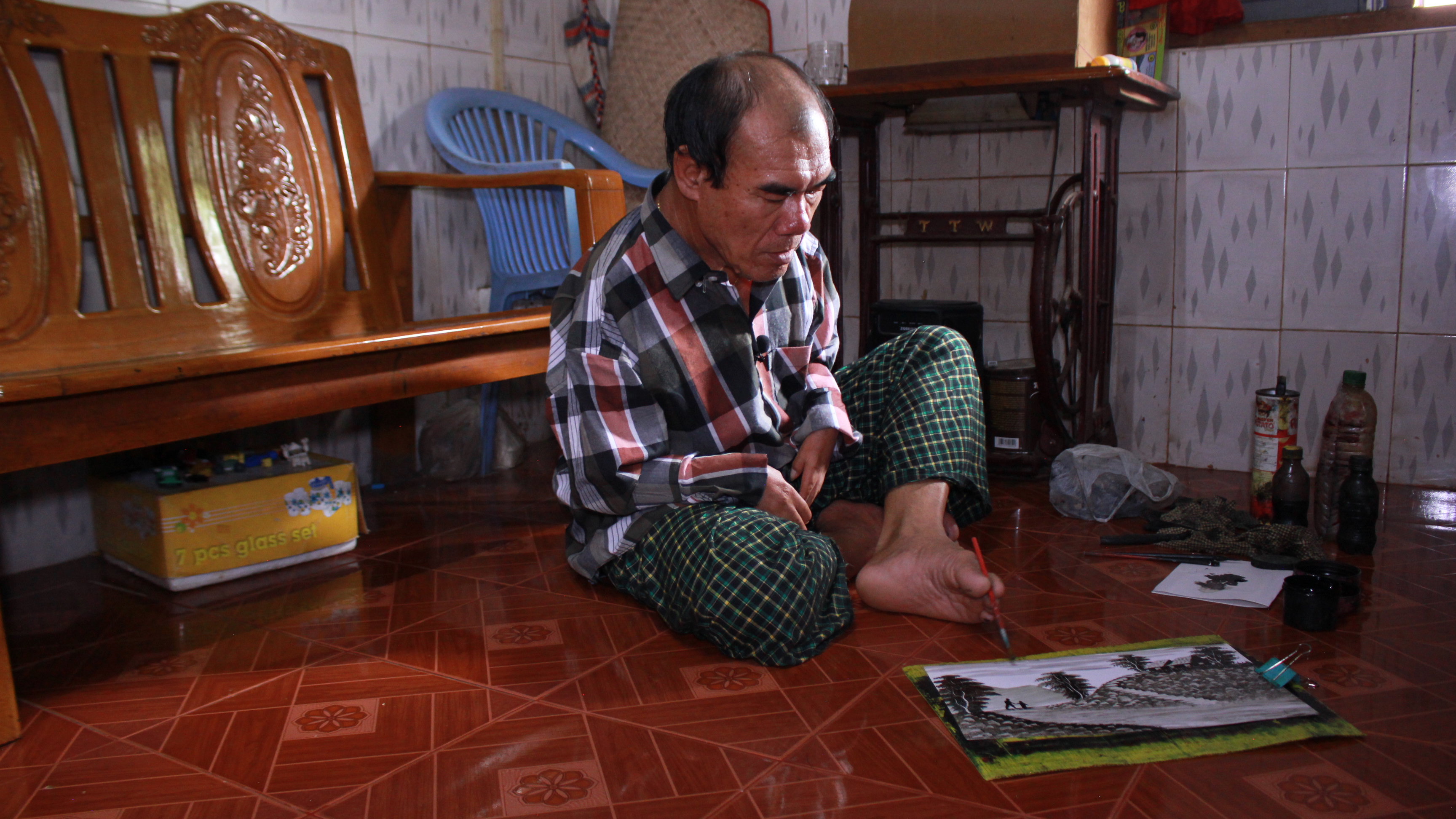
According to the 2014 Population Census, there are more than two million persons with disabilities in Myanmar, and around seven million family members living with them. It is estimated that 85% of persons with disabilities are unemployed.
Although persons with disabilities are willing and capable of working, most employers show very little interest in hiring them, resulting in limited employment opportunities.
U Win Zaw Tun, a Pyithu Hluttaw candidate from the Shan and Nationalities Democratic Party (SNDP), told CNI News that the three main priorities in parliament after the election will be employment opportunities, education, and disability issues.
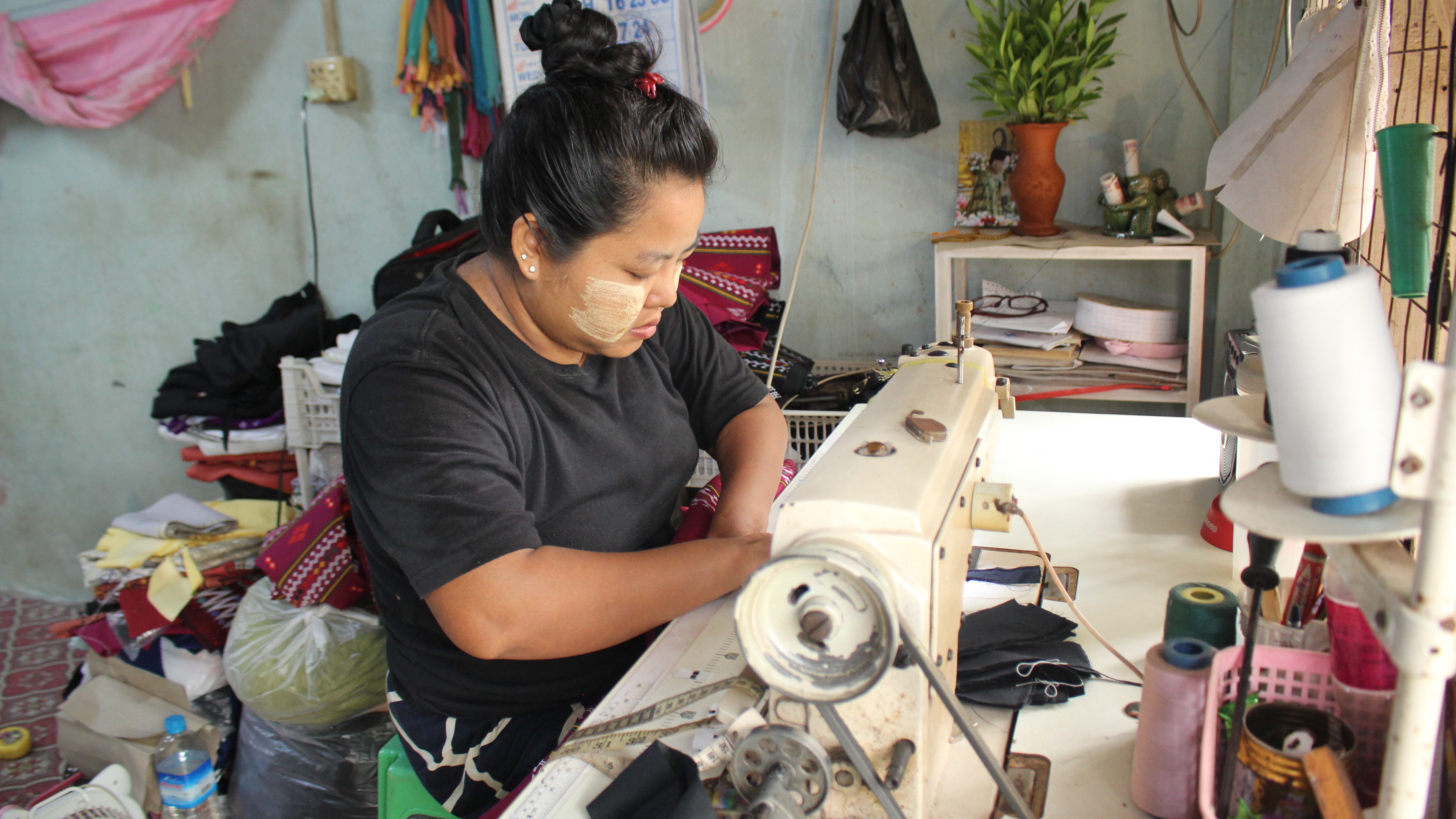
“The most important thing is demanding rights for persons with disabilities. Next, we must ensure more employment opportunities for young people and improve wage levels. Education also needs strong support. Since I myself am a teacher, I give great importance to education and will work to improve it. The three main priorities are: youth affairs, education, and disability issues. There are various vocational programs for persons with disabilities — hairdressing courses, painting and design courses, etc. Those who are educated, such as disabled persons skilled in computers, can work efficiently in office jobs. For such people, we will work to help them get office jobs. For those without formal education, we will provide training that enables them to be self-reliant. We have plans to promote vocational programs for persons with disabilities both in Yangon and across the regions so that livelihood training centers can emerge,” he said.
In Myanmar, persons with disabilities often face discrimination in workplaces, and companies willing to hire them are still limited. Disability rights advocates point out that persons with disabilities should also be trained in vocational skills in order to secure sustainable livelihoods.

- By CNI
- Category: English Section
- Hits: 186
CNI News
19 December 2025
Following the election, discussions are underway among military and political analysts about how the conscription law should be systematically regulated in the parliament (Hluttaw) that will emerge afterward.
The People’s Military Service (Conscription) Law was enacted on February 10, 2024, with the aim of enabling citizens to fulfill national defense and security responsibilities. As of now, up to the 20th intake of conscription training has already been conducted.
Dr. Nyo Nyo Thinn, founder of the Yangon Watch Group, told CNI News that many authorities are abusing the conscription law, and that once a parliament is formed, the entire process should be systematically reviewed and reformed.
She said:“These are issues we have been talking about repeatedly. The conscription law is not being implemented as the Vice Commander-in-Chief claims, nor as Major General Zaw Min Tun describes at the grassroots level. There are many authorities who are abusing this law. That’s why people are told to file complaints if they are dissatisfied—but even when complaints are filed, the situation only stays quiet for two or three months. Then after another four months, money is collected from the public again. They pool money to ‘buy’ a substitute for military service. In some areas now, the price for a substitute has reached up to 8 million kyats per person. These facts cannot be denied. Are there actions taken against this? Yes, there are some. But do these problems disappear? No, they don’t.
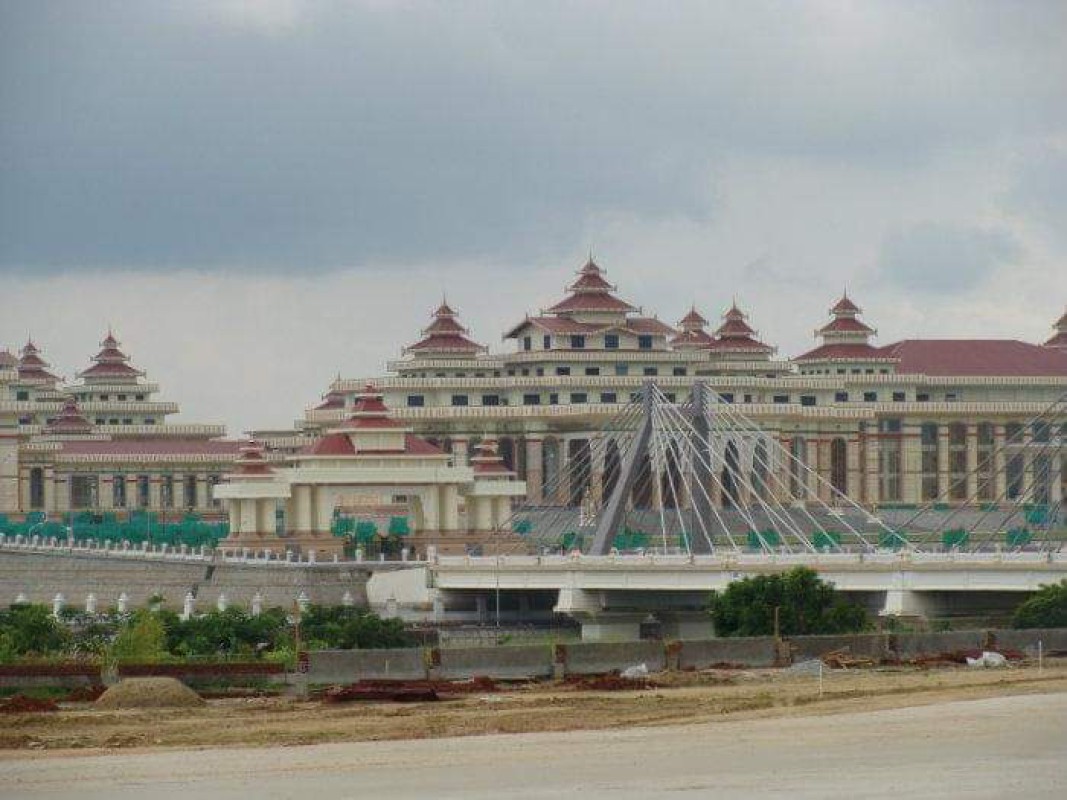
A view of Hluttaw
So if conscription can be postponed, it should be postponed. If it cannot be postponed and must continue, then the systems for collecting money and recruiting new conscripts must be fundamentally reformed. There must be greater accountability, responsibility, and transparency. This is a process that must be corrected—and once parliament is formed, this is something that must be done immediately.”
Independent candidate Daw Sanda Min told CNI News that the conscription law was originally enacted with the intention that every citizen should regard themselves as a soldier when the country is invaded from abroad. She said the law should be collectively discussed and reformed in parliament.
She said:“In the past, we didn’t see this kind of destructive criticism regarding the conscription law. But now, when people say things like ‘you enter the military today and you’ll be dead tomorrow,’ we cannot simply say that this law should be abolished. The situation doesn’t allow for that. However, many educated people will enter parliament. If all of them come together and negotiate collectively, we should be prepared to defend the country if it is invaded from abroad. We believe that the conscription law should be reformed through collective discussion, and every member of parliament believes this as well. If everyone discusses it together, I think a solution will emerge.”
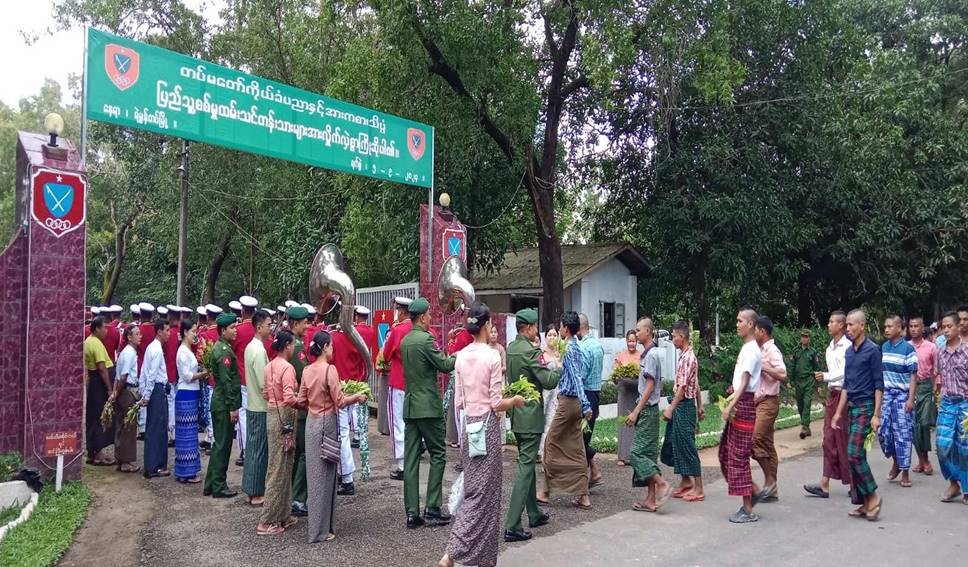
Welcoming new conscripts
Military and political analysts also point out that due to the conscription law, many young people in Myanmar are leaving the country, while others are being forcibly recruited. As a result, the number of young people of working age has declined.
Along with population decline, analysts note that Myanmar is facing labor shortages, slowing industrial production, and increased risks and hardships.
At present, intense fighting between the Myanmar military (Tatmadaw) and armed groups continues across the country. Because of this, both sides are accelerating the forcible recruitment of young people for military service.
As a result, political parties and political analysts are making efforts through various means to halt forced conscription by armed groups.

- By CNI
- Category: English Section
- Hits: 203
CNI News
19 December 2025
As Myanmar prepares to hold an upcoming election, observers are closely watching the level of public interest among people in the Ayeyarwady Region.
According to U Zaw Htun, an independent candidate who will contest in Dedaye Township, Ayeyarwady Region is an area that has chosen not to pursue armed struggle but instead is waiting for a new government to emerge through elections and democratic processes. He told CNI News:
“Ayeyarwady Region is a peaceful area. We do not take the path of armed solutions. In the 26 townships of Ayeyarwady Region, a legislature will re-emerge through democratic means. There is a principle of resolving political issues by forming a government within parliament through elections. This region is simply waiting for the election date so that a new government can emerge again through electoral means. Even when people have national ID cards but find their names missing from the voter list, they are actively applying using Form-3. This is for the country’s future. The public, the Election Commission, township administrators, and the General Administration Department are working together in cooperation.”
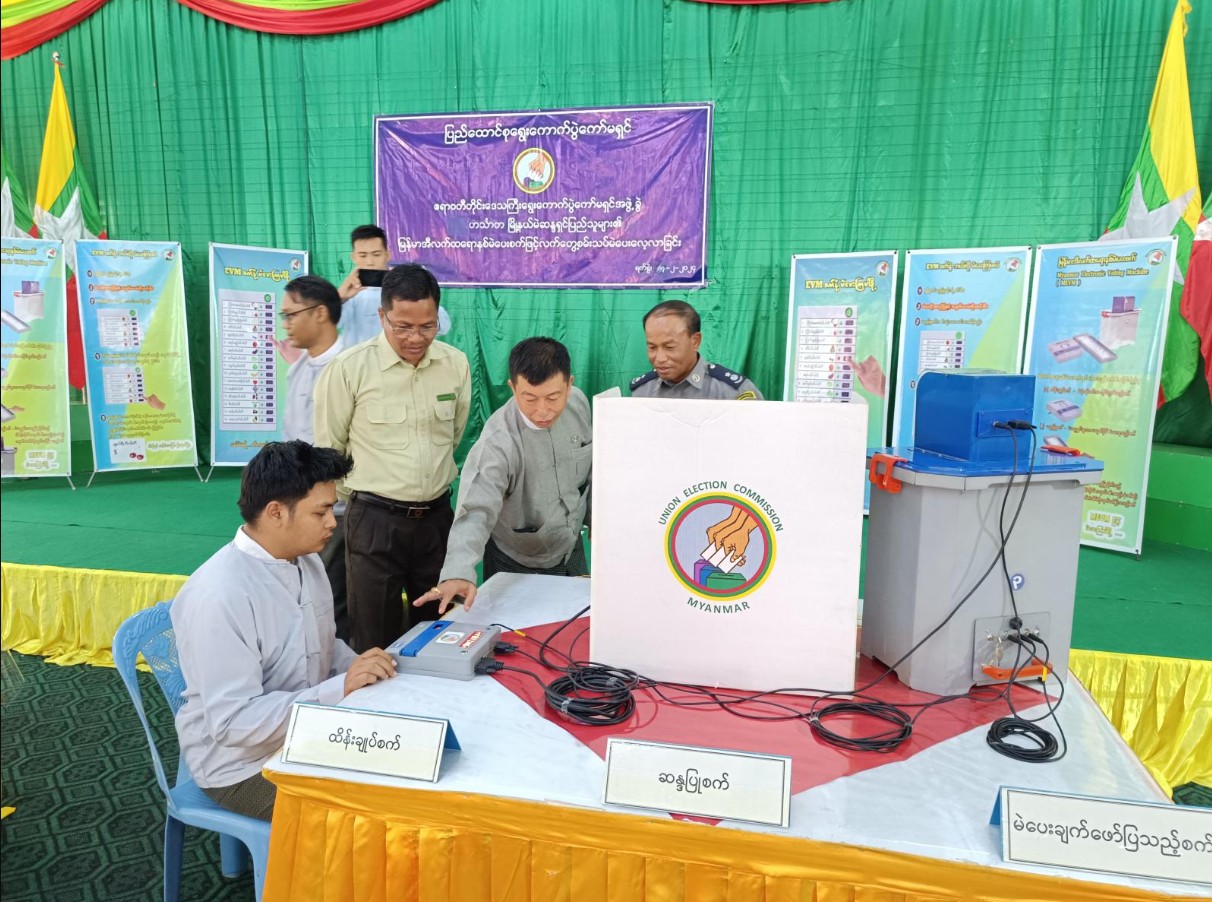
Ayeyarwady Region government is being demonstrated how to vote
On February 1, 2021, the Myanmar military (Tatmadaw) seized state power after ousting the NLD government, accusing it of attempting to form a government without resolving voter list disputes from the 2020 general election. Since then, a state of emergency has been declared, and the country has been governed under it up to the present year, 2025.
However, U Zaw Way Htet, Secretary of the Ayeyarwady Region branch of the People’s Pioneer Party (PPP), told CNI News that public interest in the election among people in Ayeyarwady Region appears to be quite low.
He said:“Among the public, we do see weak interest in the election. The reason for this is that after going through two previous elections, people observed that candidates were only visible during campaign periods. Once they reached parliament, they were unable to effectively deliver for their voters. Because of that weakness, many people now feel that after elections, nothing really changes. As a result, interest in both the election itself and in parliamentary candidates has declined. At present, voters are facing economic hardship and social difficulties, and this has further reduced their enthusiasm.”

Ayeyarwady Region government is being demonstrated how to vote
He added, however, that interest does increase among some people when parties go and meet them in person to explain their policies. For example, when his party explains that it plans to stabilize commodity prices within 100 days, some members of the public become more interested.
The Myanmar military has announced that Phase (1) of the election will be held on December 28, 2025; Phase (2) on January 11, 2026; and Phase (3) in the final week of January 2026.
The Union Election Commission has also announced that during Phase (1), elections will not be held in Bawmi Village Tract and Magyizin Village Tract in Pathein Township, Ayeyarwady Region. Similarly, during Phase (2), elections will not be held in Kyun Shar Gyi Village Tract and Thit Phyu Village Tract in Thabaung Township.

- By CNI
- Category: English Section
- Hits: 161
CNI News
19 December 2025
As Myanmar prepares for an upcoming election, there are growing discussions among military and political analysts about whether the National League for Democracy (NLD) could return to the political arena within the framework of the 2008 Constitution once a new government emerges after the vote.
A political analyst told CNI News that if genuine political progress is to occur after the election, it would be necessary to bring the NLD back into the political process under the 2008 Constitution. However, the analyst emphasized that under the current political circumstances, such a scenario would be extremely difficult to realize this time.
He said:“Political change isn’t all that complicated. Economic improvement or other factors are not the most critical issues. What really matters is creating conditions that allow the NLD to re-enter the political process within the framework of the 2008 Constitution and to participate again in elections. If the NLD were allowed back in and fresh elections were held, the NLD would certainly win again. When that happens, public trust in the government would increase, governance would become easier, and even if the ongoing armed conflicts do not end immediately, they could gradually begin to ease.”
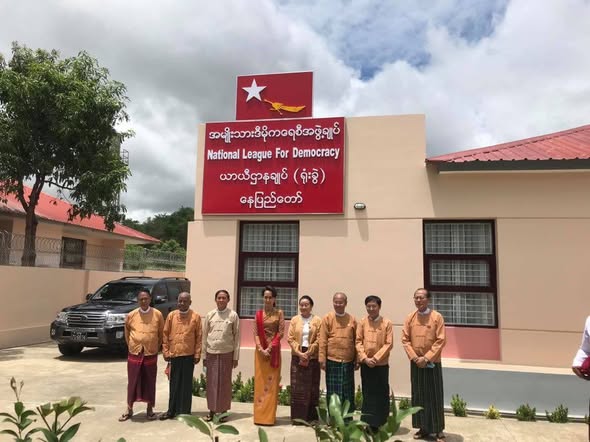
NLD party leaders
During the administration of former President U Thein Sein, legal obstacles that prevented Daw Aung San Suu Kyi and the NLD from participating in elections were removed.
However, given the current political environment, the analyst questioned whether the NLD would even accept such concessions if a future government were to offer them again.
Military and political observers also point out that because the NLD will not participate in the upcoming multi-party democratic general election, there is unlikely to be any meaningful change in the ongoing armed conflicts.
In the past, under the rule of retired Senior General Than Shwe, elections were held and state power was transferred to a government led by U Thein Sein. At that time, Daw Aung San Suu Kyi was released from detention, and significant political changes followed.
Additionally, the government was able to sign the Nationwide Ceasefire Agreement (NCA) with some ethnic armed organizations.
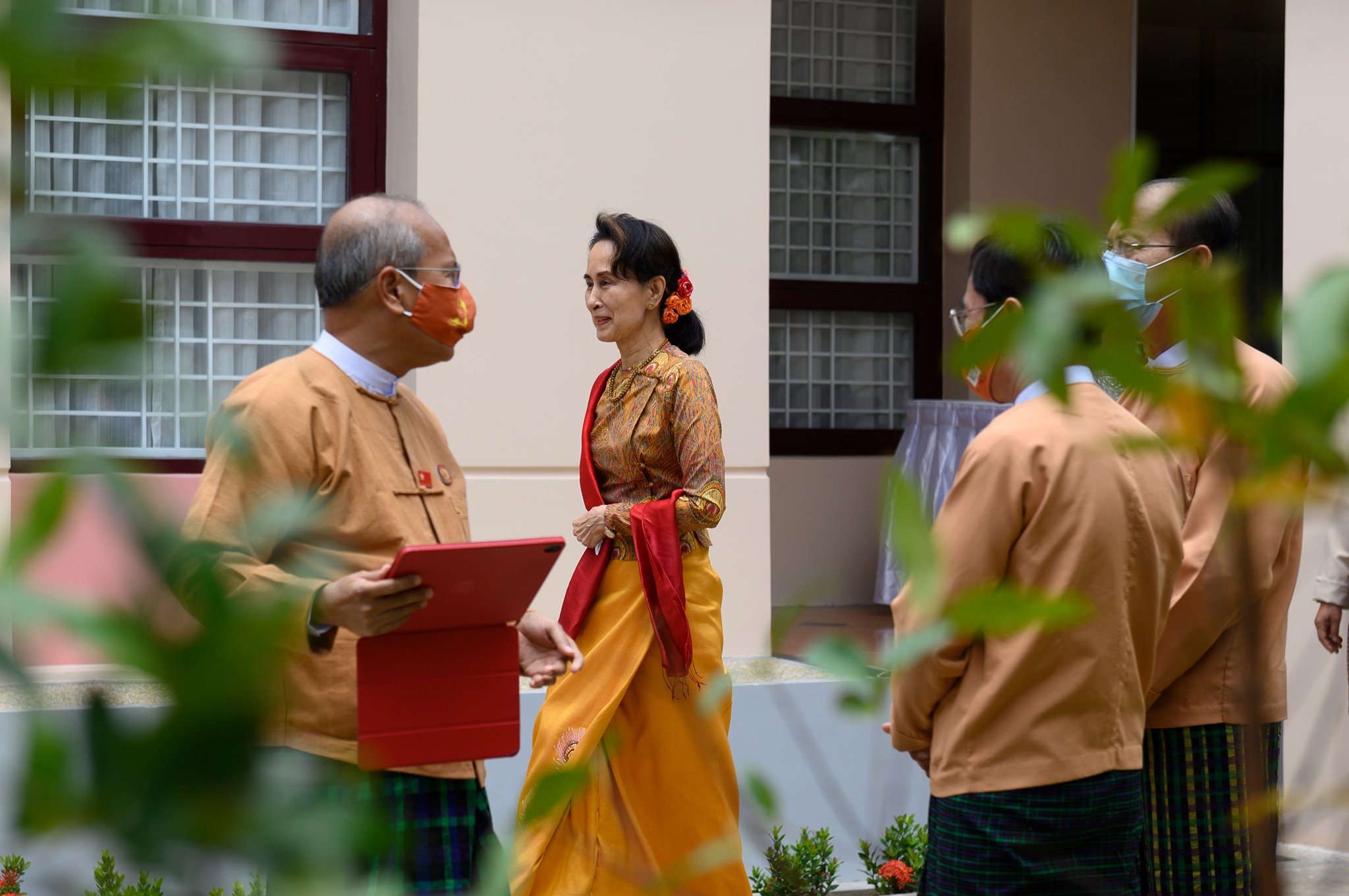
Daw Aung San Suu Kyi
However, Sai Htay Aung, Chairman of the Tai-Leng (Shanni) Nationalities Development Party (TNDP), told CNI News that the government that comes to power after the election is likely to take lessons from the experiences of the SLORC, SPDC, and U Thein Sein administrations.
He said:“I don’t really want to criticize Daw Suu’s role. During U Thein Sein’s time, she cooperated with the government. Daw Aung San Suu Kyi’s political influence is not small at all. Much will depend on the new government that assumes power after authority is transferred. If she is released and allowed to re-enter politics, she will be able to mobilize and speak to the entire country. Her political influence is very strong. As I said, this largely depends on the incoming government. I believe that the government will take lessons from the problems during the SLORC and SPDC eras as well as from the U Thein Sein period.”
On February 1, 2021, the Myanmar military (Tatmadaw) ousted the NLD government led by Daw Aung San Suu Kyi, citing unresolved disputes over voter lists from the 2020 general election and accusing the government of attempting to form an administration regardless.
Daw Aung San Suu Kyi and President U Win Myint were subsequently detained.
Although amnesties have been granted by the state since then, Daw Aung San Suu Kyi has not been included to date. As a result, analysts believe that she could either be released only after the election or possibly remain detained even afterward.

- By CNI
- Category: English Section
- Hits: 158
CNI News
18 December 2025
The statement by Senior General Min Aung Hlaing that the Myanmar Armed Forces (Tatmadaw) would gradually reduce its participation in parliament(Hluttaw) only when ethnic armed organizations no longer exist is not a convincing reason, said Colonel Khun Okkar, Chairman of the Pa-O National Liberation Organization (PNLO–NCA/S), in an interview with CNI News.
Senior General Min Aung Hlaing made the remark on December 6, 2025, during a meeting with officers, soldiers, their families, and officer cadets at the Pyin Oo Lwin cantonment, stating:
“When democracy fully takes root in our country and ethnic armed organizations no longer exist, the Tatmadaw will be able to gradually reduce its participation in Hluttaw.”
Colonel Khun Okkar told CNI that this statement is effectively the same as saying, indirectly, that the Tatmadaw will remain permanently involved in parliamentary politics.
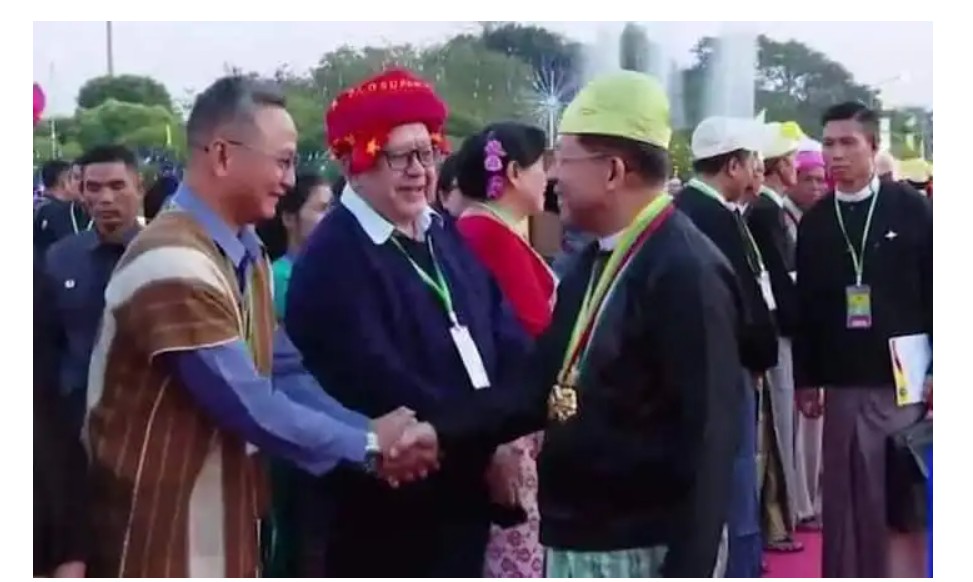
Senior General Min Aung Hlaing and Colonel Khun Okkar (wearing a red headscarf).
He said:“This is essentially the same as saying, in an indirect way, that the Tatmadaw will always remain in parliamentary politics. This is not a good reason. Moreover, even if all armed groups were to say that they are ready to sign agreements to dissolve their organizations, the Tatmadaw would still leave some military representatives in parliament. As long as that remains the case, what are the armed groups supposed to do? That is why this statement carries a negative implication.”
Senior General Min Aung Hlaing has also stated that, based on historical precedents and current circumstances, the Tatmadaw has played a leading role in national politics throughout successive eras and will have to continue participating in a leadership role in national politics.
In Myanmar, the Tatmadaw is guaranteed 25 percent of seats—without contesting elections—in the Pyithu Hluttaw (House of Representatives), the Amyotha Hluttaw (House of Nationalities), as well as in regional and state legislatures, under the 2008 Constitution.
Ethnic armed organizations and political parties have called for the withdrawal of these military representatives from parliament or, at minimum, a reduction in their proportion.
Colonel Khun Okkar further said that if there were genuine intent to reduce the Tatmadaw’s participation in parliament, it would be possible only by adopting a policy under which the government and the highest state authority are owned and controlled by an elected civilian government leadership.
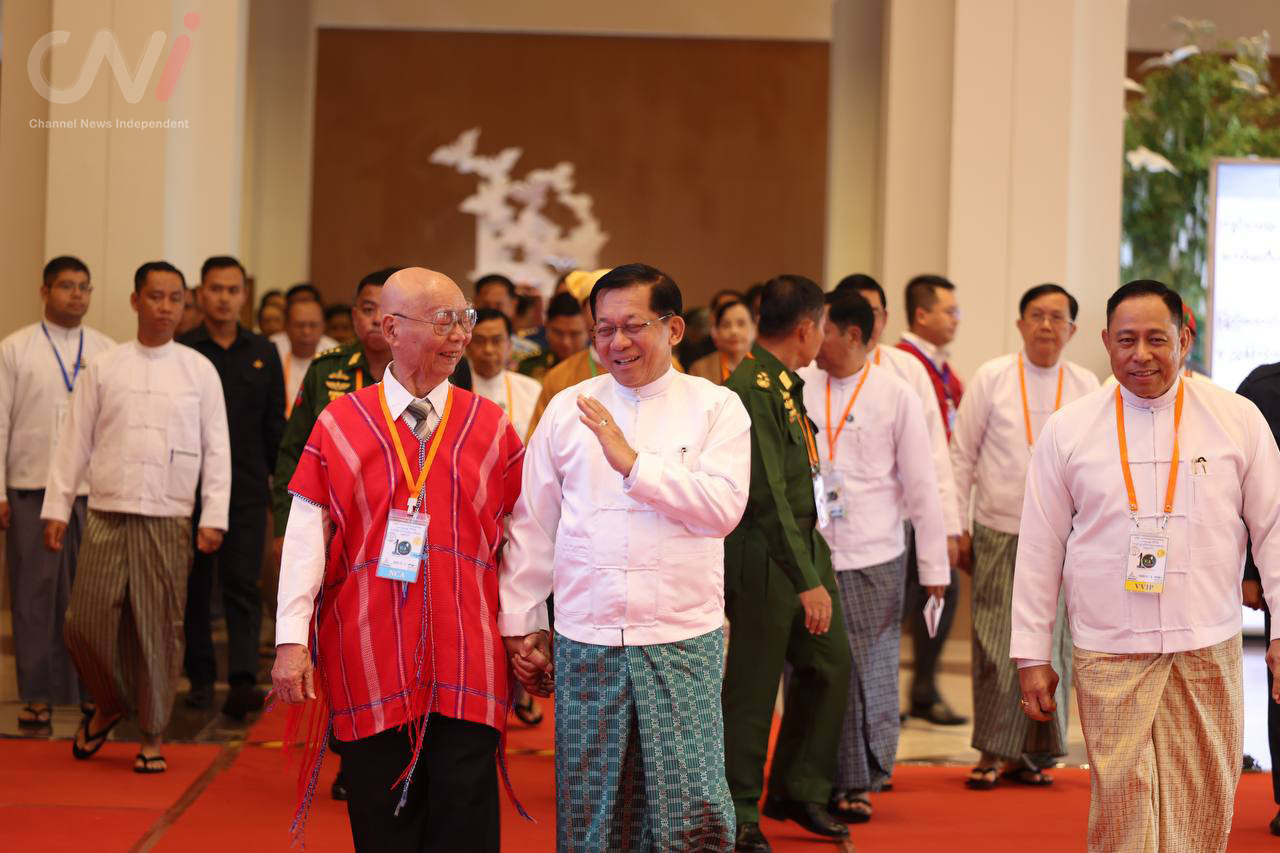
Armed groups and Tatmadaw–government leaders seen together.
He explained:“That is Civilian Supremacy—the principle that the highest authority of the government and the state is held and controlled not by the military, but by civilian leaders. If Civilian Supremacy, which is the essence of democracy under a civilian government, is followed, then all armed forces must come under a civilian Minister of Defense. Under that civilian defense minister, there would be commanders who manage the military. Those commanders would not be directly involved in politics. After retiring from the military and becoming civilians, they could enter politics through a political party and even serve as defense minister if they wish. Under civilian supremacy, the defense minister must be a civilian, and if all armed forces are under a civilian defense minister, then there is no longer a need for the military to participate in parliamentary politics. The army would become a professional army—like the Indian Army, the Nepalese Army, or the Bangladesh Army. Once it becomes a professional army that adheres to civilian supremacy, there is no need for the military to sit in parliament. That is the core policy that needs to be discussed.”
The policy of Civilian Supremacy means that elected civilian governments play the decisive role in political decision-making and the functioning of state institutions, while the military remains under the leadership and oversight of the civilian government in matters of national defense and security.
In other words, it is the principle that political power should be controlled by those chosen by voters, rather than by those who hold guns. This policy is known to be a foundational pillar of nearly all modern democratic countries.

- By CNI
- Category: English Section
- Hits: 122
CNI News
17 December 2025
Offering of Kauk Oo alms food (alms food made from first crop of paddy) to Sangha and Buddha regarding the entire Uru Creek region, which is a Shanni traditional event, and the festival to mark New Year are being held in Htaingon Village, Homalin Township, upper Sagaing Region from 16th to 18th December, 2025.
The traditional ceremony of eating the first crop was collectively held by the 19 village tracts including Htaingon.
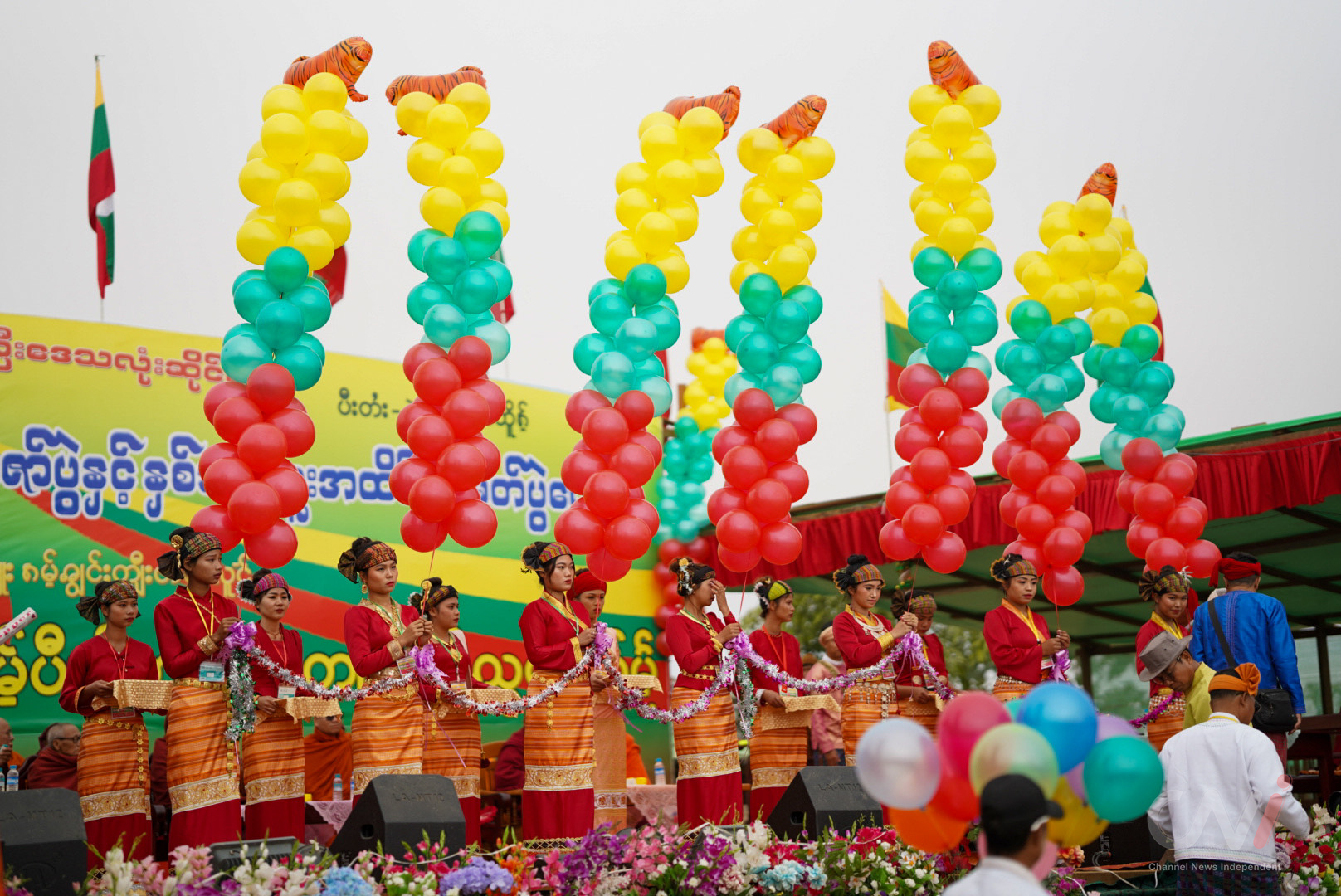
The Shanni ethnic people are concentrated in Myanmar’s Sagaing Region and Kachin State. After Myanmar gained independence on January 4, 1948, Shanni territories were divided into two parts, resulting in the loss of unity as a single, cohesive region.
Since then, the Shanni ethnic people have been a group that has been calling for the establishment of a Shanni State.

- By CNI
- Category: English Section
- Hits: 274
CNI News
17 December 2025
According to an exclusive intelligence investigation, Silicon Valley Time reported that a secret agreement has been concluded between India and Myanmar’s Kachin Independence Army (KIA).
The agreement is said to undermine Myanmar’s sovereignty and constitutes a strategic partnership aimed at the extraction of rare earth minerals.
Based on satellite imagery and cross-border intelligence, it has been confirmed that India is constructing a 365-kilometer road from Vijaynagar in Arunachal Pradesh to a rare earth mining site in Chipwi town, Kachin State. This road was built without the approval of the Myanmar Tatmadaw and the government. Through this route, India would gain access to rare earth resources from Myanmar, while in return India would be able to provide the KIA with weapons, medicines, and other logistical support.
The agreement also reportedly includes a covert plan to construct a second strategic road linking the KIA headquarters in Laiza, passing through Sagaing Region, and extending to Rihkhawdar town in Chin State.
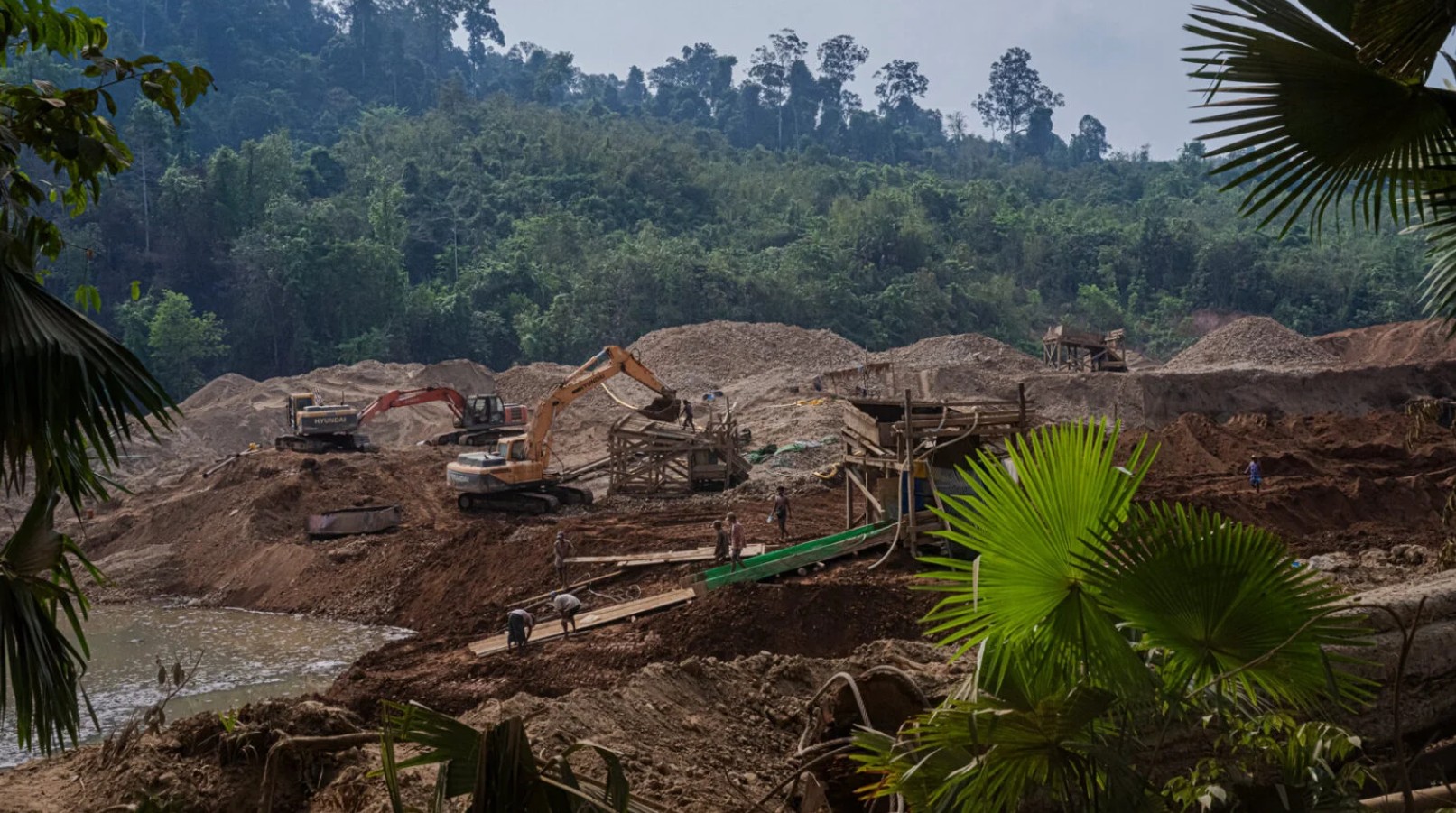
Gold mining in progress
Funding for this corridor is said to come from revenues generated by illegal timber smuggling networks in Myanmar, and it would enable the long-term export of rare earth minerals, oil, and teak to India.
Analysts noted that the KIA’s involvement has allowed India to indirectly control resource-rich areas, while bypassing the Myanmar Tatmadaw and weakening the military’s territorial influence.
India’s military assistance—channeled through Arunachal Pradesh—includes advanced weapons systems and medical supplies, which have enhanced the operational capabilities of the KIA as it confronts the Myanmar Tatmadaw.
In return, the KIA has reportedly pledged to suppress anti-India insurgent groups along the border, including NSCN-K/YA, and has also quietly endorsed India’s claims regarding the disputed Chin State and Kabaw Valley areas.
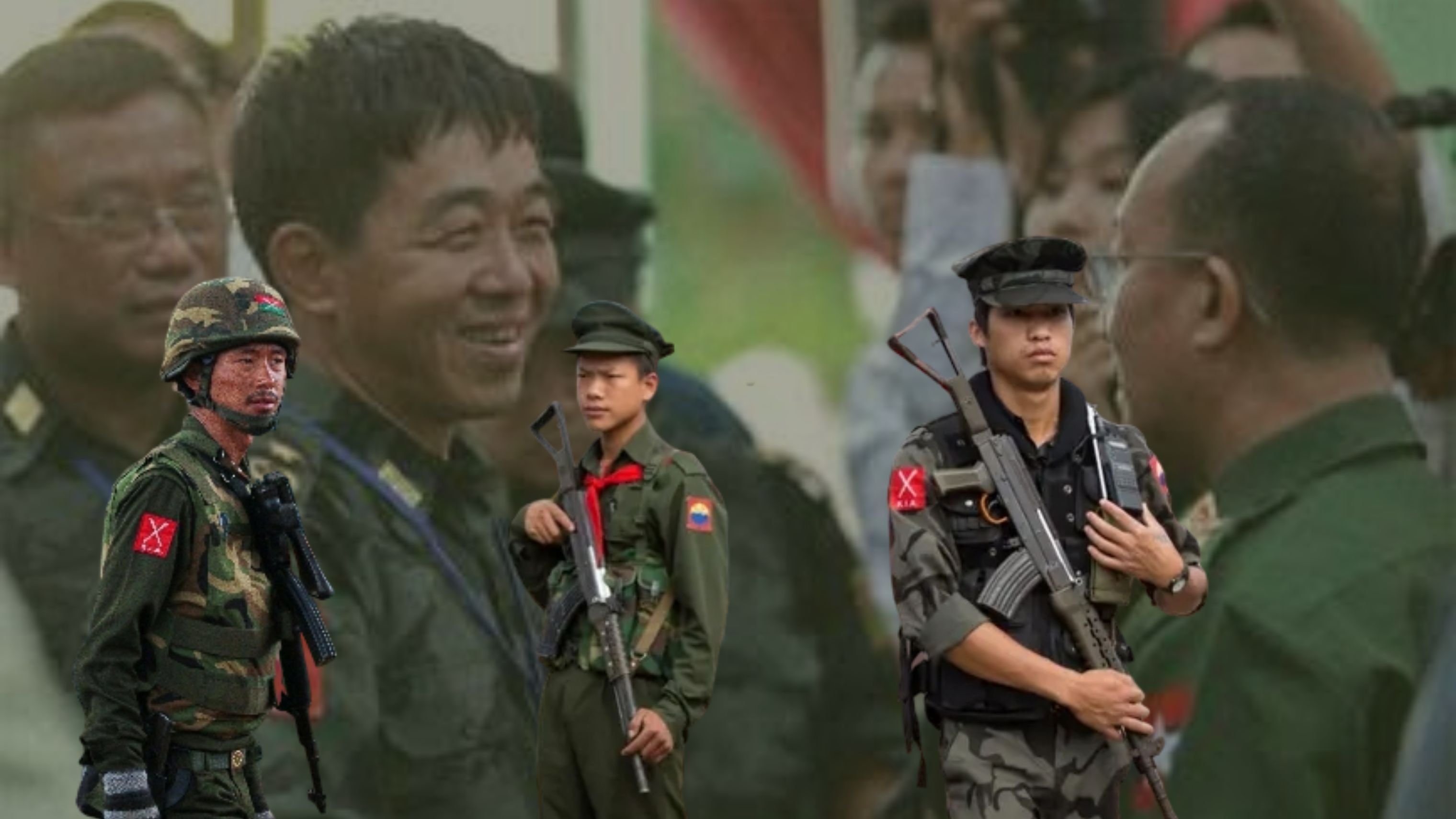
KIA forces seen
A Myanmar military official strongly criticized the agreement, calling it a blatant violation of international law, and warned that unauthorized Indian activities within Myanmar’s border regions would be met with severe military retaliation.
The official stated that road construction and resource extraction by Indian entities without Myanmar’s consent violate the fundamental principles of the United Nations Charter concerning sovereignty.
“These actions not only threaten Myanmar’s stability but also pose a serious risk of triggering a broader regional conflict,” the official from Myanmar’s military government said.
Source: Silicon Valley Time

- By CNI
- Category: English Section
- Hits: 152
CNI News
17 December 2025
Senior General Min Aung Hlaing, Chairman of the State Security and Peace Commission, said that successfully holding the election is a matter of national dignity and that all stakeholders must work together to ensure the election is successfully conducted in all areas where it will be held.
He made the remarks on December 11, 2025, during a meeting with members of the Yangon Region Government and departmental officials at the regional and district levels.
Senior General Min Aung Hlaing said, “The successful holding of the election is a matter of national dignity. Therefore, everyone must work together to ensure that the election is successfully conducted in all areas where it will take place. Arrangements are being made to allow voting through Myanmar Electronic Voting Machines (MEVMs), which cannot be used for electoral fraud.”
He added that under the democratic system and in accordance with the 2008 Constitution, elections are an unavoidable task that must be successfully carried out. Therefore, responsible officials from the Yangon Region Government must also cooperate to ensure the successful holding of the election.
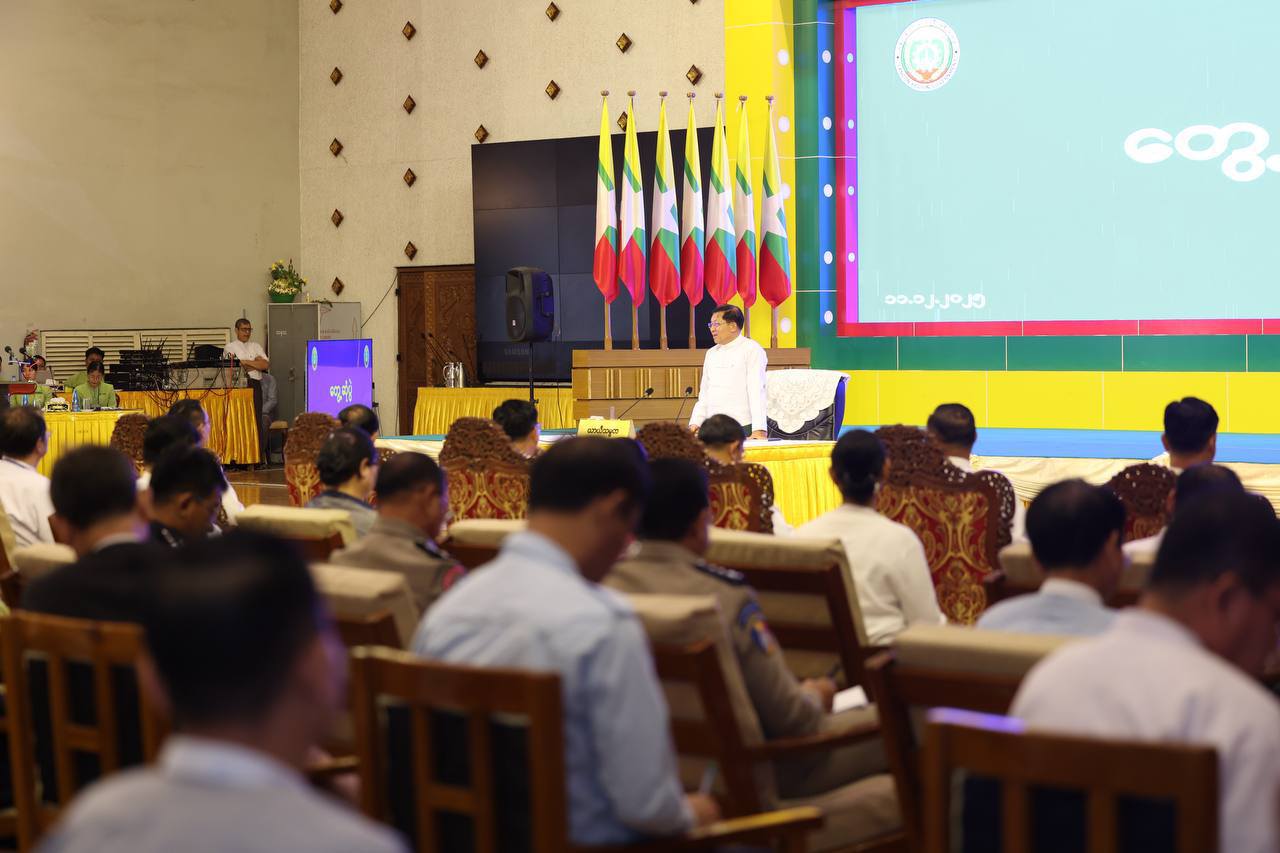
Senior General Min Aung Hlaing seen during the meeting.
Senior General Min Aung Hlaing further stated, “Since we are a government that assumed responsibility due to inaccuracies in voter lists during previous elections, the election we organize must not have errors in voter lists. Although it may not be possible to achieve 100 percent accuracy, we must strive to make them as accurate as possible. Efforts must be made to ensure that those listed do not lose their right to vote. Whether or not to cast a vote is the voter’s choice, but enabling voters to be able to vote is the responsibility of the government.”
In Myanmar, Phase (1) of the election will be held on December 28, 2025. Phase (2) will be held on January 11, 2026, and Phase (3) will be held in the last week of January.After that, state power will be transferred to the political party that wins the election, and the Tatmadaw will focus solely on national defense, Senior General Min Aung Hlaing said.
On the other hand, some armed groups, the NUG, and Spring Revolution forces have announced that they will sabotage the election at all costs and have also stated that they will take effective action against those who participate in the election.

Pakistani Ambassador Presents Credentials to the Chairman of the State Security and Peace Commission
- By CNI
- Category: English Section
- Hits: 142
CNI News
17 December 2025
The Ambassador of the Islamic Republic of Pakistan to Myanmar, H.E. Mr. Tariq Karim, presented his credentials to the Chairman of the State Security and Peace Commission, Senior General Min Aung Hlaing.
The presentation of the credentials took place on December 16, 2025, at the Diplomatic Reception Hall in Nay Pyi Taw.
Following the ceremony, discussions were held on enhancing cooperation in the areas of trade, the economy, defense, health, and political affairs.
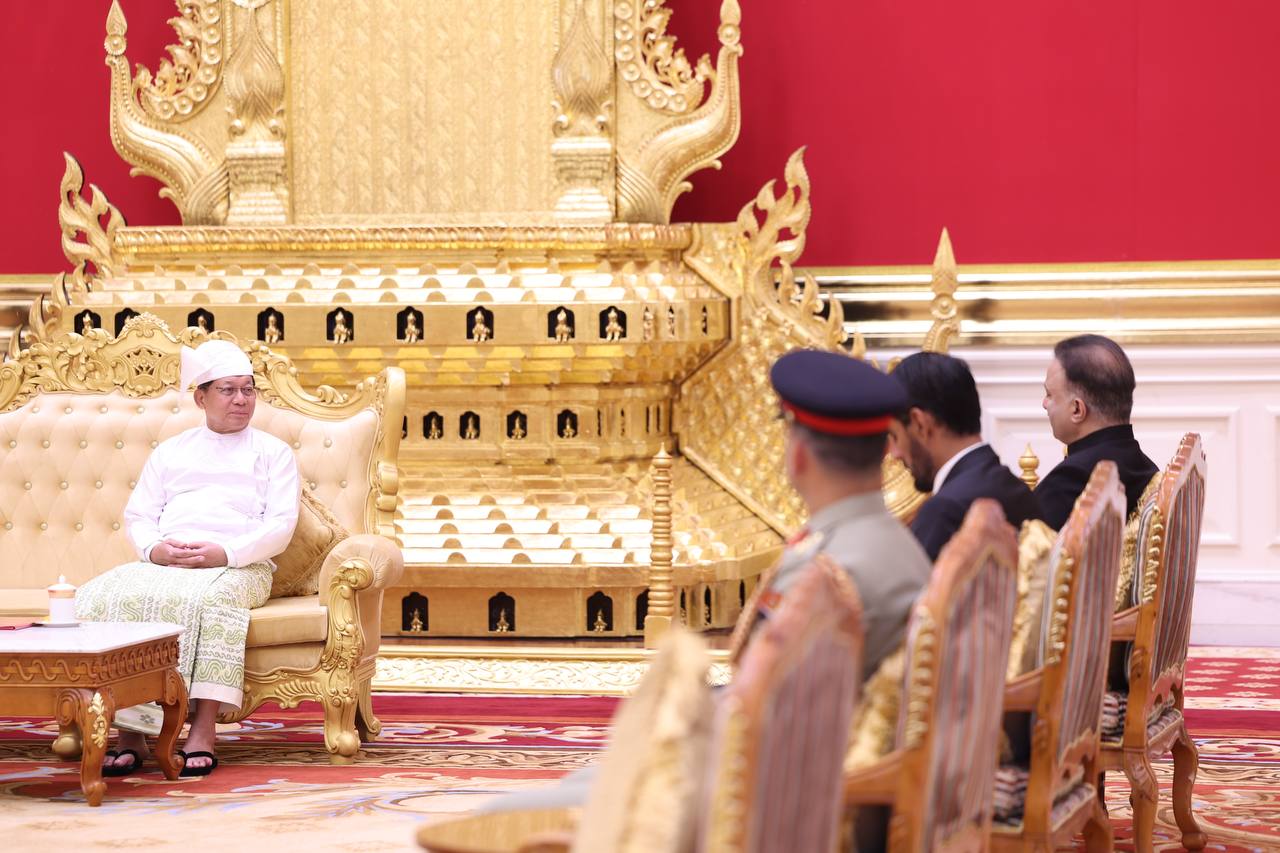
Similarly, matters related to strengthening cooperation in the religious and tourism sectors were discussed, along with enhancing cooperation between the respective Ministries of Foreign Affairs.
They also discussed the situation regarding Pakistan sending election observation missions to Myanmar’s upcoming multi-party democratic general election.
Mr. Tariq Karim has assumed duties as the Ambassador of Pakistan to Myanmar, replacing the former Ambassador, H.E. Mr. Imran Haider.



